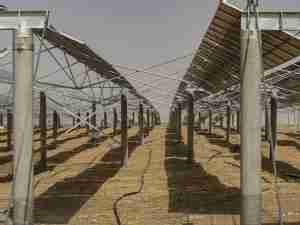The company develops and operates large agricultural trade and logistics centers in China.
"In the long run, probably in the five to 10 years time frame the Chinese agriculture industry will benefit," said Sonny Hung of Yorkshire Capital Limited in Hong Kong, an outside consultant to China Metro-Rural.
"The radiation in the east in Japan actually decreases the amount of land that they could use" for farming, he said. If the crisis deepens, Japan "might have a tendency to source more import agriculture products, and China is the nearest to them."
So far, the import ban and supply disruptions are mainly affecting Japanese restaurants, supermarkets and department stores in Hong Kong and China, the company's executives said on a visit to New York to meet with investors.
The World Health Organization said China is one of the top markets for Japanese food products, importing $593 million in agricultural goods from Japan last year.
Perhaps in the next five years rice for Japan's sushi will increasingly come from China, where some markets already carry Japanese varieties of sweet potatoes, apples and sweet corn planted in China, China Metro-Rural executives said.
Such Japanese-style crops grown in China are produced in a more organic "Japanese way," said Alex Lung, China Metro-Rural's deputy chief financial officer. Farmers raising Fuji apples over the past decade have even serenaded the fruit with music, he said.
China Metro-Rural runs large trade centers in China that bring together farmers with bulk buyers, offering everything from banking to hotels and rail access for more effective goods shipments.
This "one-stop solution" in a nation of 700 million farmers helps develop China's less costly third- and fourth-tier cities, and opens more competitive and transparent pricing, said China Metro-Rural Chief Executive Sam Sio. (Reuters)





